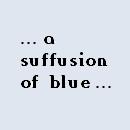Here is small .script (just below 1024 bytes) that allows to "hexedit" files or device sectors from command line.
Not particularly (please read as completely unlike ) foolproof ![]() , but less half-@§§ed than usual, actually working and potentially very dangerous
, but less half-@§§ed than usual, actually working and potentially very dangerous ![]() .
.
Kids, play with this on something of which you have a copy or backup (bytes, once written, tend to stay written ![]() ).
).
!BAT setlocal if %1.==. goto :help set ddwrite=%~dpnx0 set target=%1 shift set offset=%1 if not exist offset goto :help set /a offset=%offset% > nul set /a counter=0 > nul :p_loop shift if %1.==. goto :show set /a skip=%offset%+%counter% > nul cat --hex --skip=%skip% --length=1 %target% | set tbyte= cat --hex --skip=%skip% --locate=\x%tbyte:~10,2% --number=1 --replace=\x%1 %target% set /a counter=%counter%+1 > nul goto :p_loop :show cat --hex --skip=%offset% --length=%counter% %target% goto :EOF :help echo catedit.g4b - small script to write hex values (bytes) to file or device echo - by jaclaz - completely FREE under Careware License echo Usage: echo catedit.g4b <target> <offset> [space separated hex values] echo echo Examples: echo catedit.g4b (fd0)0+1 510 55 AA echo will write the "Magic Bytes" 55AA on the first sector of first floppy device echo echo catedit.g4b (hd0,0)/boot.ini 54 3D 31 30 echo will write "=10" at offset 54 in the file (hd0,0)/BOOT.INI goto :EOF
![]()
Wonko















